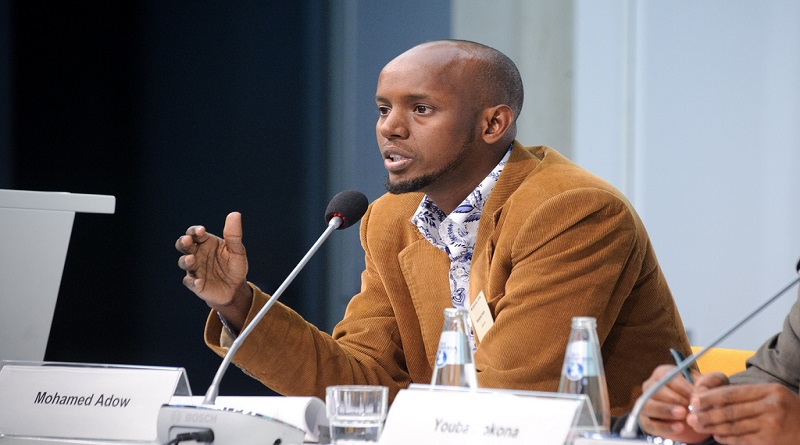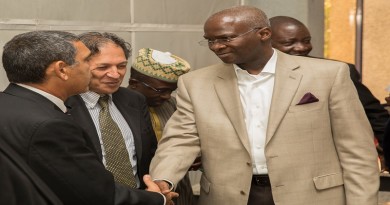Reactions trail IEA special report on net-zero by 2050
The International Energy Agency (IEA), the world’s most influential energy institution, today released its flagship report “Net Zero by 2050.” The report is a first of its kind from the agency providing a comprehensive roadmap that outlines how countries can achieve an energy transition towards a 1.5 C degree pathway and in line with commitments contained in the Paris Agreement. It clearly states that countries can tackle the climate emergency through bold and ambitious actions starting now. Doing so can also save millions of lives from air pollution while securing economic growth and equity through the provision of universal energy access and the creation of more jobs in the renewable energy and the energy efficiency industry and related infrastructure.
In a major win for scientists and civil society activists around the world, the IEA recognizes that all new investment in and production of fossil fuels must stop immediately. Over many years, civil society organisations have placed great pressure on the IEA to demonstrate leadership by moving countries to higher climate ambition to cut their emissions and radically transform the energy systems. As with tackling the COVID-19 pandemic, the transformation of energy systems requires international cooperation and solidarity through the provision of finance and sharing of technologies with developing countries, which supports them to embark on the rapid energy transition in a just and fair manner. Like CAN, the IEA acknowledges that ambitious climate actions in this decade are crucial to meet long-term climate goals and that rich nations have to lead this transition by contributing about two thirds of the necessary efforts towards the renewable energy transition.
Climate Action Network (CAN) welcomes this report’s recognition and confirmation of the feasibility of the 1.5 C degrees Paris Agreement temperature goal, and as our only chance to overcome one of the greatest challenges faced by humankind.
“It is hugely significant that the most influential energy agency recognized the urgency and the need for immediate actions in this critical decade in order to stay below 1.5C degrees,” said CAN´s Executive Director Tasneem Essop.“This sends a strong message to countries, the fossil fuel industry and investors worldwide that the time to end business as usual is now; that the radical transformation of all economies in a fair and just manner through centering equity and the rights of affected communities and to benefit from the renewable energy transition requires bold and courageous leadership as of today.”
Countries have immediate opportunities to prove to their citizens that they are serious about securing a better future and more resilient and robust economies where everyone can thrive.
The world’s richest countries are set to meet for the G7 Summit in June and for the G20 summit in October. They must commit to the rapid phase out and halt any new investments in fossil fuels from 2021, scale up the delivery and investment in clean technologies like wind and solar as well as very strong energy efficiency and sustainable infrastructure for better grids, energy storage and development of renewable hydrogen. They must also commit adequate finance for developing economies to join the transformation on an equitable basis.
While CAN welcomes the IEA report´s emphasis on large growth of particularly clean renewables like solar and wind to about two third of all energy use by mid-century, we are concerned that it falls short of going much further. In particular, CAN is critical of the IEA scenario’s reliance on doubling nuclear power, growing carbon capture, use and storage (CCUS) to about 15% of all CO2 emissions reduction efforts and significantly increasing the use of bioenergy by mid-century.
“Despite this overall bold and laudable move by the super-influential IEA in energy, finance and industry ministries around the world, there are serious flaws and gaps in some of the proposed solutions presented in the pathway. CAN strongly opposes the suggested large growth of dangerous, untested and unaffordable technologies. CAN objects to a so-called “technology-neutral” policy” said Stephan Singer, CAN´s Senior Climate Science and Global Energy Policy Advisor.
Despite its shortcomings, CAN strongly encourages the IEA to make the roadmap and milestones its central scenario from now on for the coming years to assess governments´ energy and climate policy implementation in this decade while continuing to address the weaknesses. CAN is offering to work with the IEA to improve this scenario towards a fully sustainable pathway for all.
Similarly, the 350.org said with this report, the IEA finally acknowledges there is no room for new fossil fuel projects within their pathway to 1.5C. However, their scenario depends heavily on “net zero” projects which have seen polluting governments and corporations shifting the burden, disguising climate inaction and maintaining a business as usual scenario.
Anna Vickerstaff, UK team lead at 350.org said; “In the past, the International Energy Agency has been hesitant to call time on the fossil fuel industry – not anymore. When this conservative institution is demanding an end to fossil fuels it really is time for governments to ditch the net-zero rhetoric and take immediate action to cut their support for polluting corporations.
We won’t stand by and let the UK government use this year to grandstand themselves by loudly celebrating empty net-zero promises. The growing call for concrete action is impossible to ignore. It’s time to end fossil fuels”
We demand that the richest countries own up to their climate debt, support countries least responsible and hardest hit by the climate crisis through massive and unconditional climate finance, and deliver a rapid transition to a fairer and more sustainable economy that works for all.”
Landry Nintereste Africa Managing Director, said “There is a growing risk that reports such as these are shifting the narrative away from the rapid and ‘real’ emissions reductions that climate justice requires. Net-zero is being used by the world’s biggest polluters and governments as a façade to evade responsibility and disguise their inaction or harmful action on the climate crisis. We are seeing a lot of net-zero projects for example by fossil fuel companies like Shell and BP where carbon offsetting through tree planting is being championed as the answer to the climate crisis.
There are also massive implications for communities in the global south living on the land where these carbon offsetting projects are being planted, putting pressure on food systems and generating land conflicts even though these countries have done little to cause the climate crisis. We have seen violent evictions of indigenous people, for example, the Sengwer people in Kenya, to make way for tree plantations. Net-zero is a dangerous trap that constitutes a new form of climate colonialism. It needs to be resisted.“




